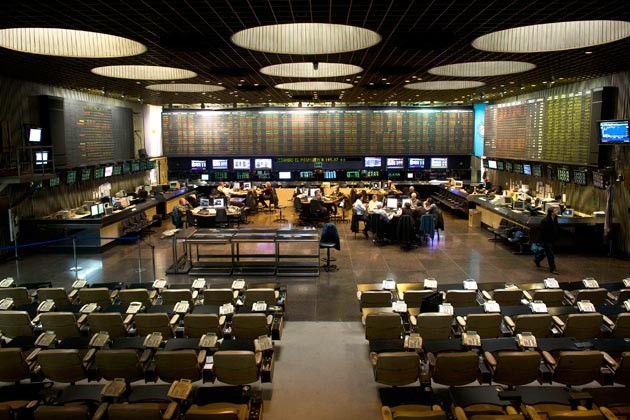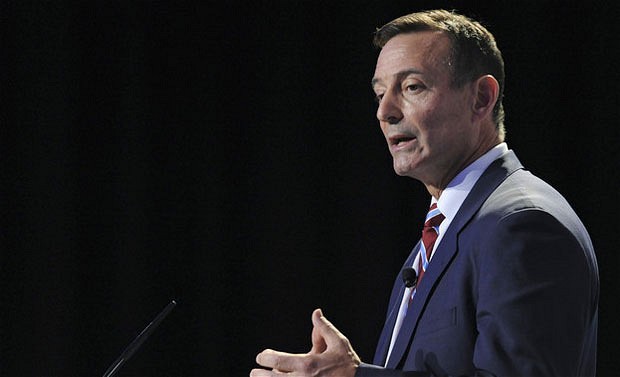EmergingMarket Tremors Shake the World Economy
Post on: 16 Март, 2015 No Comment

Photograph by Xinhua/eyevine/Redux
A protester confronts the police during a clash in Kiev on Jan. 22
Emerging-market crises were supposed to be passé—a relic of the rocky 1990s, when investors suffered through the Tequila Crisis and the Asian Contagion in rapid succession. But history is stubbornly repeating itself. Emerging markets erupted afresh during last summer’s Taper Tantrum—who comes up with these names, anyway?—and as 2014 begins there’s turmoil from South America to Asia.
Most at risk are poorly governed countries such as Argentina and Ukraine that became addicted to hot money from foreign investors in search of high returns. Those capital flows are sloshing back to developed economies like the U.S. leaving submerging economies behind. Countries with stronger finances and a unified citizenry are in less trouble, so the likelihood of another full-blown emerging-markets crisis remains low. Yet some of them could be dragged down if investors flee in a panic. “Events can unfold very rapidly if a disorderly process takes hold,” Morgan Stanley (MS ) analysts warned clients on Jan. 27.
Each emerging country is unhappy in its own way, making it hard to predict what happens next—and prescribe a one-size-fits-all policy fix. “You don’t have a silver bullet here,” says Pablo Goldberg, head of emerging-markets research at HSBC Securities (HSBC ) .
The storm brewed up just as the world’s elites were in the Swiss Alps for the annual meeting of the World Economic Forum. A Jan. 23 report of contracting factory output in China raised the specter of slower Chinese demand for commodities and goods from its trading partners. That same day the Argentine government devalued the peso by the most in 12 years, abandoning attempts to prop it up by buying pesos with dollars. Other countries had their own troubles: A corruption investigation in Turkey undermined the authority of Prime Minister Recep Tayyip Erdoğan; Ukrainian President Viktor Yanukovych infuriated opponents by pushing through antiprotest laws (since rescinded under pressure); Thailand imposed a state of emergency in Bangkok; and Egypt experienced a fresh wave of street violence.
10%
Turkey’s benchmark interest rate, which more than doubled from 4.5 percent on Jan. 28
Suddenly, investors who once fell over themselves to pour money into emerging markets have turned skeptical. They’re especially leery of countries that have built up chronic trade deficits. They’re growing suspicious even of countries that are in better shape—but vulnerable to contagion in case of weakening global growth and worsening investor sentiment. Safe from the storm are the lucky few countries that have trade surpluses, fat reserves of foreign exchange, and stable governments.
The seeds of the crisis were sown in good times. Emerging markets were in fashion after the Federal Reserve and other developed economies’ central banks slashed interest rates to accelerate growth. Countries hooked on the inflows were rocked last year when Federal Reserve Chairman Ben Bernanke began to signal a bond-buying taper.

Now countries such as India, Indonesia, South Africa, and Turkey are in a bind: They still need foreign money to pay for big deficits in their current account, which is the broadest measure of trade and investment income. But if they hike interest rates dramatically to keep attracting investors’ money to their bond markets, they may kill economic growth. The Turks are about to find out if strong medicine will work: On Jan. 28 the central bank raised its benchmark rate to 10 percent from 4.5 percent, defying Erdoğan, who has railed against an “interest rate lobby.”
If emerging economies try to prop up their currencies by buying them on the open market, they could run out of precious foreign exchange reserves. And if they let their currencies depreciate, they risk inflation from higher import prices. In short, says Karen Hooper, a director of analysis at Stratfor in Austin, Tex. these countries “are not well set up to handle a decline in investor interest.”
The countries in the worst shape are suffering from both economic and political crackups, says Jan Randolph, director of sovereign risk for IHS Global Insight (IHS ). One or the other alone isn’t usually fatal. Thailand has fared relatively well despite chronic political turmoil, Randolph notes, because it has a strong economy and abundant foreign exchange reserves. The Baltic nations of Estonia, Latvia, and Lithuania have also held together but for nearly opposite reasons: Their stable political systems weathered deep economic downturns.
Most emerging economies have stronger finances and more ample reserves now than after the Tequila Crisis, which began with a Mexican devaluation in 1994, or the Asian Contagion, which was touched off in 1997 by a devaluation of the Thai baht. “If the Tequila Crisis is a full body, this is less than a pinky toe,” says HSBC’s Goldberg. Brazil is running a current-account deficit but has a large buffer of reserves. China has been unaffected by the crisis, though it has its own internal difficulties.
Some experts are downright optimistic. “These could certainly be huge events for the individual countries, but on a global scale, we’re making a mountain out of a molehill,” says Jacob Oubina, senior U.S. economist at RBC Capital Markets (RY ). The U.S. might actually benefit: “Even if the EM instability worsens it may have a silver lining for advanced economies by adding to the downward pressure on global commodity prices,” Capital Economics said in a Jan. 28 research note.
That said, financial crises are unpredictable. “Sudden stops”—in which the flows of money to emerging markets abruptly cease—“are notoriously nonlinear events, which is what makes predicting them almost impossible,” the Morgan Stanley team wrote on Jan. 27. We’re not out of the woods yet.














